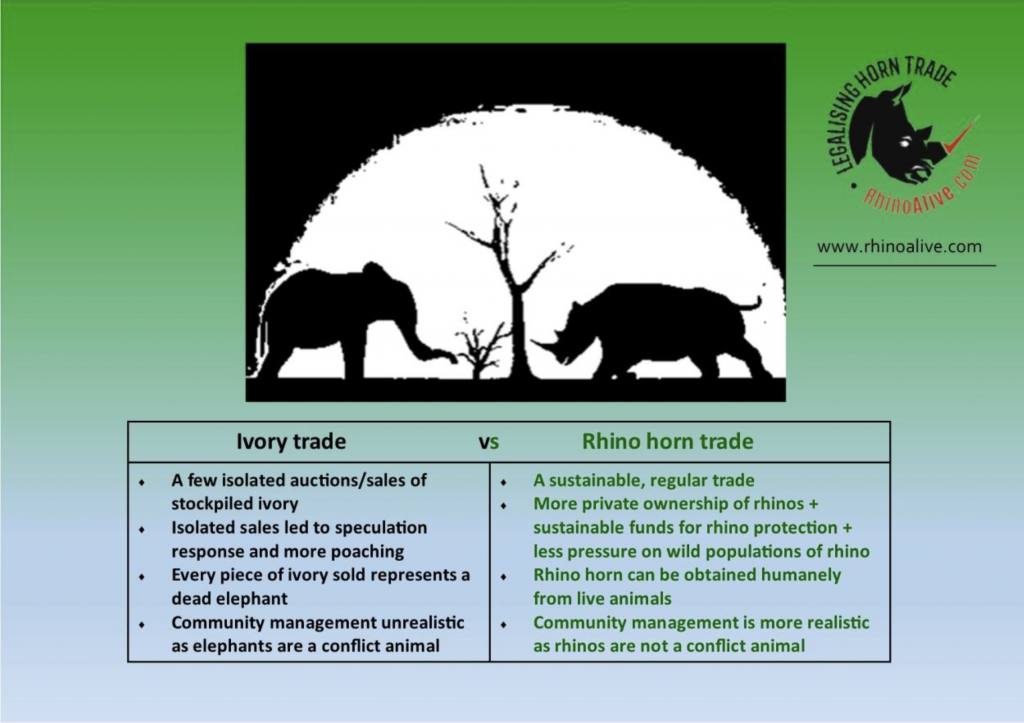Originally published on RhinoAlive.com.
Hello
We often meet people who have gathered perspectives on the rhino poaching situation primarily from press articles or friends and Facebook groups.
We would like to offer an overview of the rhino crisis from our own perspective, with facts and figures that clearly demonstrate how the ban on trade has failed, and continues to fail our rhinos. Please feel free to share this article with people who may have an interest in the rhino issue.
Rhino Crisis Overview
Many articles cite the limited and isolated sales of ivory as failures for elephant conservation and they use these to illustrate the dangers of a potential legal trade in rhino horn.
The table below was compiled to raise some facts about the ivory auctions and to highlight the difference between the two concepts.

Recent articles of interest:
Ivo Vegter’s smart and eloquent response to Melanie Verwoerd’s opinion piece on legalising rhino horn sales:
The big problem with opposing legal rhino horn sales
Rhino poaching incidents have been rampant over the past couple of months. With the vast majority of poaching incidents taking place in our national reserves, the importance of private reserves in rhino conservation and protection cannot be over-emphasized.
16 Rhino carcasses found at the Kruger
An interesting write-up from India, where national parks are also battling with a drastic increase in rhino poaching incidents:
Sell the horn, save the rhino
We are always interested in, and supportive of ethical sustainable utilisation models and this example of ‘the Three Amigos’ resonates with South Africa’s current rhino situation. An interesting blog article by Andrew Wyatt:
Extinction vs. Captive Conservation: The fate of the Three Amigos
© Quintus Strauss
Thank you to Quintus Strauss for this beautiful rhino photo and to our subscribers for their ongoing support, time and assistance in keeping the rhino horn sale debate alive, factual and balanced.
Kind regards,
The RhinoAlive Team
RhinoAlive is a group of concerned individuals, conservationists and rhino owners. We have collaborated with PROA (Private Rhino Owner’s Association) and WRSA (Wildlife Ranching South Africa) to further information on aspects of legalising international rhino horn trade.

